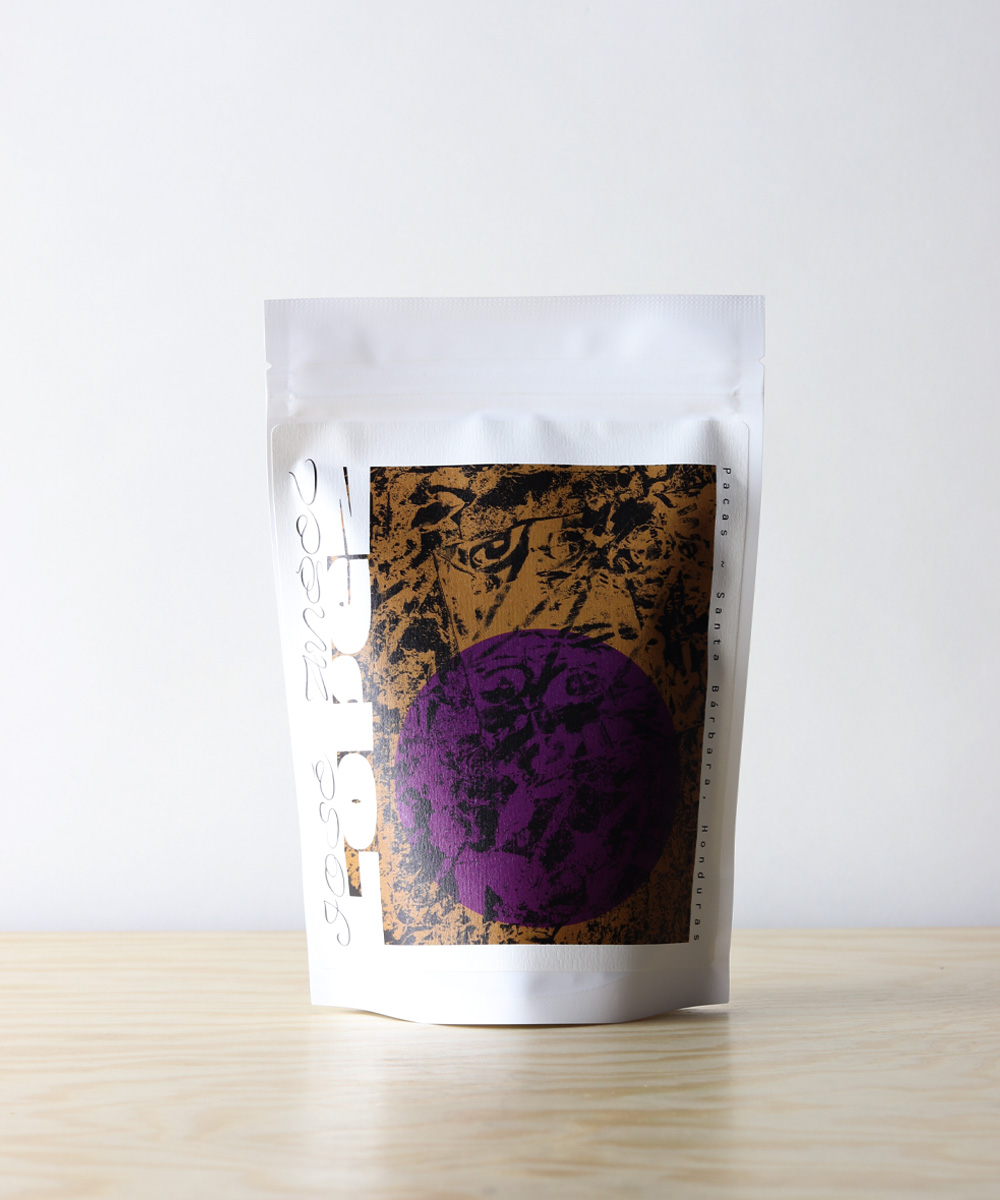Pacas by José Angel Lopez in Santa Bárbara, Honduras (2022)
US$0.00
Producer: José Angel Lopez
Origin: Santa Bárbara, Honduras
Variety: Pacas
Processing: washed
Exporter: Beneficio San Vicente
Tasting notes: pear, praline, herbal complexity, jammy fruitiness
This Pacas variety grown by José Angel Lopez in Santa Bárbara, Honduras reminds us of sweet pear praline and mixed berries – Exceptionally clean and balanced. This is José’s third coffee harvest, and we’re excited by the progress he has made since beginning to farm coffee for himself just a few years ago.
Producer
Before working on his own farm, Jose was working as a picker with the notable Morales family in Los Andes, Santa Barbara. Jose has mainly Pacas variety but didn’t have any wet milling equipment or drying tables yet, so he borrowed from neighbours to get his coffee ready for delivery to the dry mill. That reliance on your community to get to the next step is critical, and something we can totally relate to. Once we received that first lot, I reached out to Benjamin to see if I could buy a depulper for Jose as thanks for the lovely coffee but also thinking ahead to next year’s harvest. With one hurdle out of the way perhaps Jose could find a spot on his property to process his lots. Benjamin actually happened to have a depulper hanging around on his farm that he wasn’t using, so the next time Jose was at the dry mill, the de-pulper was handed over.
Variety
Jose Angel Lopez is farming Pacas (and a touch of Parainema) on a cool 1 hectare in the Piedras Amarillas area of Santa Barbara. That signature Santa Barbara weather is clockwork – cool mist enveloping the mountainsides of the national park reserve. This micro climate is thanks to close proximity to Lake Yojoa, introducing this cooling effect that is an incredible asset to growing varieties like Pacas slowly, allowing more time for nutrient uptake and slower maturation of the fruit.
Pacas is a natural mutation from Bourbon where it grows smaller and more compact allowing harvesting to be a little easier and planting to be closer together than would be possible with Bourbon, much like the Caturra variety grown widely in Colombia. Introduced to Honduran coffee farmers by IHCAFE in 1974, the variety was first discovered on a farm in the Santa Ana region of El Salvador, owned by the Pacas family, in 1949.
Processing
The cherry is harvested at its optimum maturity and depulped before being transferred to a fermentation tank for approximately 20 hours. After the fermentation the parchment is washed with water, shaking it vigorously with a wooden paddle. The washed parchment is then taken to a solar dryer that a neighbour lends to José where the coffee dries for approximately 14 days.
Water
We brew all our coffees with municipal water that flows from our taps in Metro Vancouver. This municipal source is very soft, low ppm water (less than 30 TDS)
There are many alternative water recipes out there that will produce tasty cups if your water from the tap isn’t giving you good results. A good place to start is 1/2 strength Third Wave Water of around 60-70ppm (0.16g.-0.2g./L of TWW powder).
Brewing
We make an effort to taste our coffees in a variety of ways, but mostly use cupping, V60, and Kalita 155 brews as our main ways of quality control and dialling in roast profiles. Our filter recipes can be found in our Journal here:
Espresso
Roasted with filter coffee in mind, expect shots that are lighter in body and brighter in acidity than your typical espresso profile.
José Angel Lopez makes shots that are super balanced, sweet & bright, with a buttery body and decent complexity. Definitely a great coffee for both espresso and filter coffee. Currently drinking shots in the upper side of 35-40sec. But play around it’s pretty forgiving and easy to work with.
